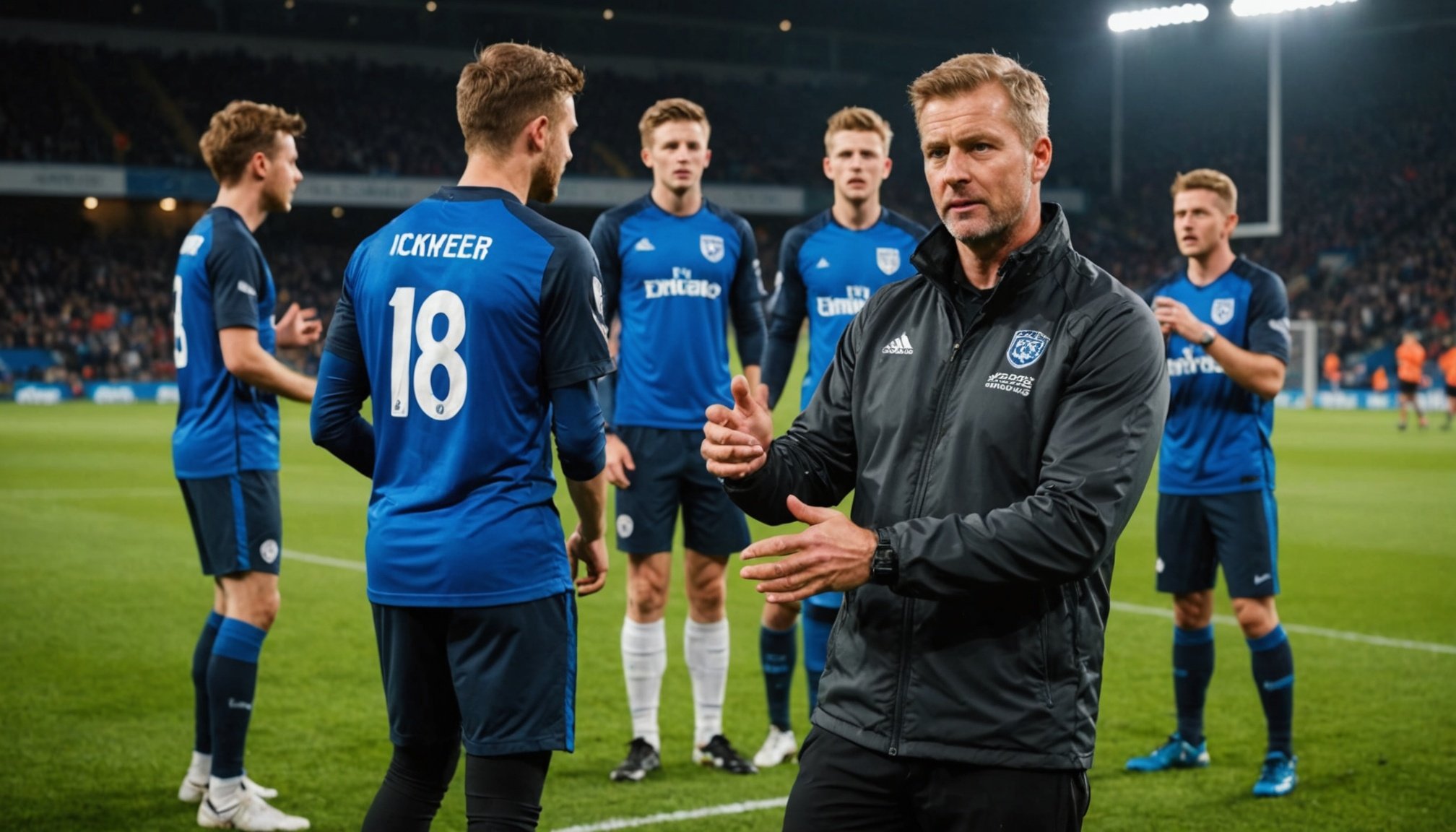Strategies for Empowering Youth Football Coaches in the UK
Empowering Youth Coaches is crucial to the development of young footballers in the UK. One of the key coaching philosophies that plays a major role in this empowerment revolves around fostering engagement and enthusiasm among young players. Encouraging coaches to blend motivational tactics with Coaching Strategies that emphasize personal growth, rather than just winning, tends to result in more engaged and passionate athletes.
Effective Communication Techniques
Effective communication with young athletes involves more than just giving instructions. Coaches should employ an empathetic and understanding approach, listening actively to the players’ feedback and concerns. By encouraging open dialogue, coaches can build better trust and rapport, allowing for a more productive and supportive team environment.
In the same genre : Master Your Game: Essential Footwork Techniques to Enhance Speed and Agility for UK Badminton Players
Building Confidence and Teamwork
To bolster confidence and teamwork, Youth Football Development strategies may include team-building exercises and inclusive drills that ensure every player feels valued. This not only increases their confidence but also instils the importance of teamwork. Through continuous encouragement and support, young athletes learn to rely on one another, fostering unity and collaboration on and off the pitch.
Enhancing Coaching Effectiveness for Young Athletes
Creating an enriching and motivating coaching environment for young athletes is vital for their growth. A supportive atmosphere enhances player development, fostering not only skills but also a sense of belonging. Resilience and adaptability are crucial, as they allow athletes to thrive under varying conditions. Coaches can inspire these qualities by encouraging perseverance in the face of challenges, guiding athletes through setbacks and celebrating their efforts as well as achievements.
Additional reading : Cultivating Respect and Integrity in UK Sports Clubs: Effective Strategies for a Vibrant Team Culture
Building a Positive Coaching Environment
Relating to young players on a personal level helps foster connection. Encourage curiosity and question-asking to promote a culture of learning and understanding. Techniques such as recognising individual progress and embracing differences can enrich the experience for all. Providing constructive feedback should always be balanced with positive reinforcement, ensuring young athletes feel supported and inspired.
Engaging Training Techniques
Practice sessions can be more fruitful when they incorporate fun and competition. Making training enjoyable can significantly boost engagement and motivate players. Tailor drills to suit various age groups, focusing on both skill enhancement and enjoyment. This could range from adapting traditional drills to new, exciting formats, helping athletes to not only improve but genuinely enjoy their practice time.
Inspiring Young Athletes
Inspiring Young Athletes is about more than just physical training; it’s about nurturing their aspirations. Goal-setting techniques are powerful tools for sustaining motivation and maintaining focus. By setting clear, achievable goals, coaches can help young athletes conceptualise success, breaking it down into manageable steps. This empowers players to visualize their progress, keeping them driven even through challenges.
Success stories and role models are critical elements of inspiration in youth sports. Sharing narratives of athletes who overcame adversity or reached the pinnacle of their careers helps cement the idea that significant achievements are within reach. It also provides tangible examples of dedication, perseverance, and the types of behaviours that lead to success.
Additionally, celebrating both small and large victories is crucial. Recognition not only boosts morale but also reinforces a positive association with effort and achievement. For young athletes, understanding that hard work pays off encourages them to remain committed to their development. Through this holistic approach, coaches can effectively inspire their athletes, fostering a lifelong passion for sports and personal growth.
Strategies for Preventing Burnout in Esports
Understanding burnout is essential for sustainable performance in the esports industry. Burnout Prevention focuses on recognising symptoms and implementing strategies to mitigate them. Burnout in esports can manifest as physical, emotional, and mental exhaustion, often resulting from prolonged stress and intense gaming schedules.
Creating Balanced Training Regimens
Creating a balanced approach to training can significantly impact Esports Well-being. This involves integrating structured rest and recovery periods into schedules, ensuring that athletes have time to rejuvenate. Techniques for managing time effectively include alternating between high-intensity practice and relaxation phases, preventing exhaustion and enhancing focus.
Esports professionals must allocate time for personal life alongside practice and competition. This balance reduces overexertion and supports overall Mental Health in Gaming.
Encouraging Open Dialogue about Mental Health
Promoting an environment of open communication is vital for addressing mental health concerns in esports. By cultivating a culture where athletes feel comfortable discussing their experiences, team leaders can intervene early, offering necessary support. Resources such as counselling services or peer support networks are available within the esports community, providing professional athletes with the tools they need to maintain mental health equilibrium.
